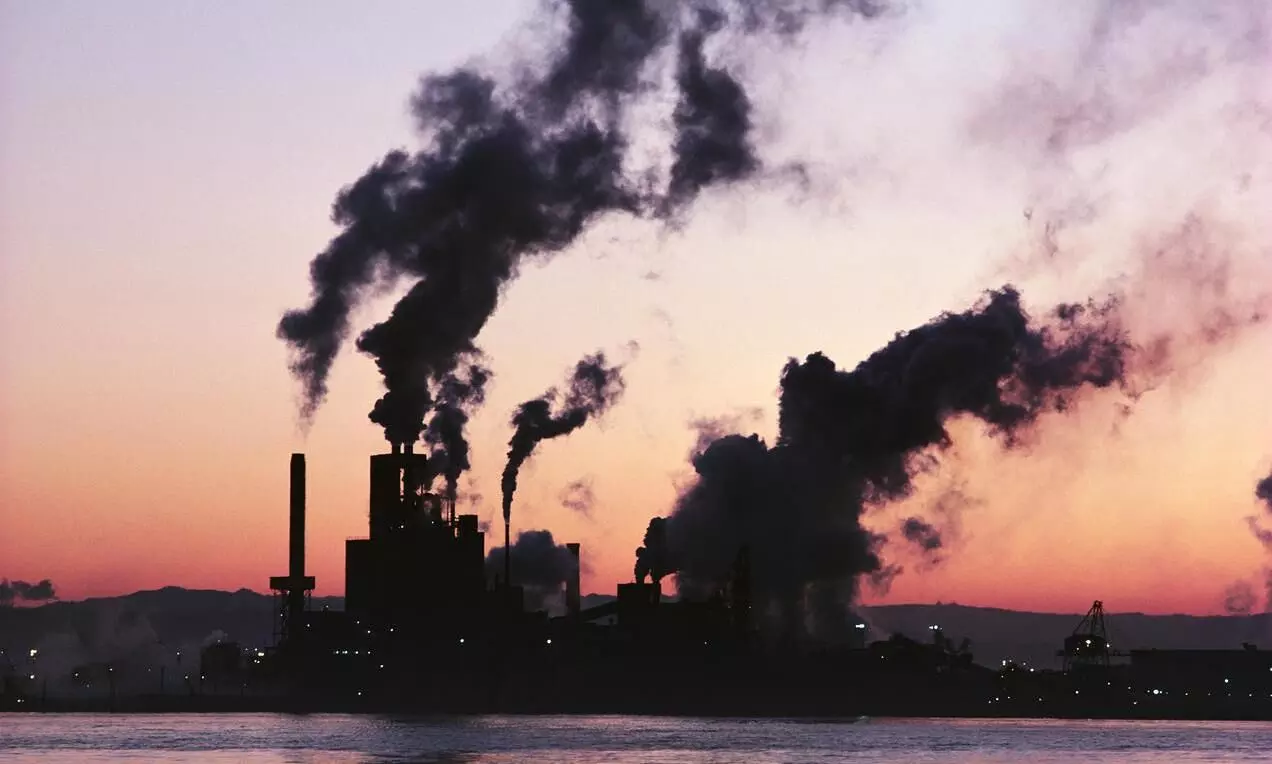
Global energy system pushes humanity to crisis: UN
text_fieldsRepresentational.
Geneva: Warning the world that the global energy system was pushing humanity to a crisis, United Nations said on Wednesday that four major climate change indicators reached record levels in 2021, Agence France-Presse reported.
The UN's World Meteorological Organization (WMO) said in its report titled "State of the Global Climate in 2021" that the four were greenhouse gas concentrations, sea-level rise, ocean heat and ocean acidification. These changes are causing harmful and long-lasting ramifications for ecosystems, the report said.
UN Chief Antonio Guterres said that fossil fuel pollution should be stopped immediately, transitioning to renewable energy "before we incinerate our only home". He suggested ending fossil fuel subsidies, tripling investment in renewable energy and advancing in the field of renewable energy technologies, such as battery storage and freely-available global public goods.
According to the report, the last seven years recorded the highest temperature on record. But successive La Nina events cooled 2021 at the start and the end. However, the year remains one of the warmest years recorded, and the average global temperature that year was nearly 1.11 degrees above the pre-industrial level. This is when the Paris Agreement od 2015 mandates signatory countries to keep temperatures below 2C above average pre-industrial levels.
WMO chief, Petteri Taalas, said that heat trapped by greenhouse gases will remain for many generations while sea-level rise, ocean acidification and ocean heat will remain unless a method to remove carbon from the atmosphere is found.
The report stated that greenhouse gas concentration reached a new global high in 2020 as the concentration of CO2 has reached 413.2 parts per million (ppm) globally then. This is 149 per cent of the pre-industrial revolution level. The trend was an increase of the same through 2022. At Hawaii's Mona Loa, CO2 reached 416.45 ppm in April 2020, 419.05 ppm in April 2021, and 420.23 ppm in April 2022, the report informed.
The global mean sea level kept rising by 4.5 millimetres per year from 2013 to 2021. This was 2.1mm per year from 1993 to 2002. This was attributed to the accelerated rise of sea level to the accelerated melting of icecaps.
Regarding the ocean heat, the report predicts that the upper 2000 metres of the ocean will continue to get warmer in the future, which is not reversible in centennials to millennials. WMO states that the warm is going to penetrate more sea depths.
The ocean absorbs 23 per cent of annual human-induced CO2, but it reacts with seawater and initiates ocean acidification. According to the UN's Intergovernmental Panel on Climate Change's conclusions, current open ocean surface acidity is the highest in 26,000 years.
Further, the report suggests that the ozone hole in Antarctica has become unusually deep and large, with a maximum area of 24.8 million square kilometres in 2021, and this was because of a "strong, stable polar vortex".























